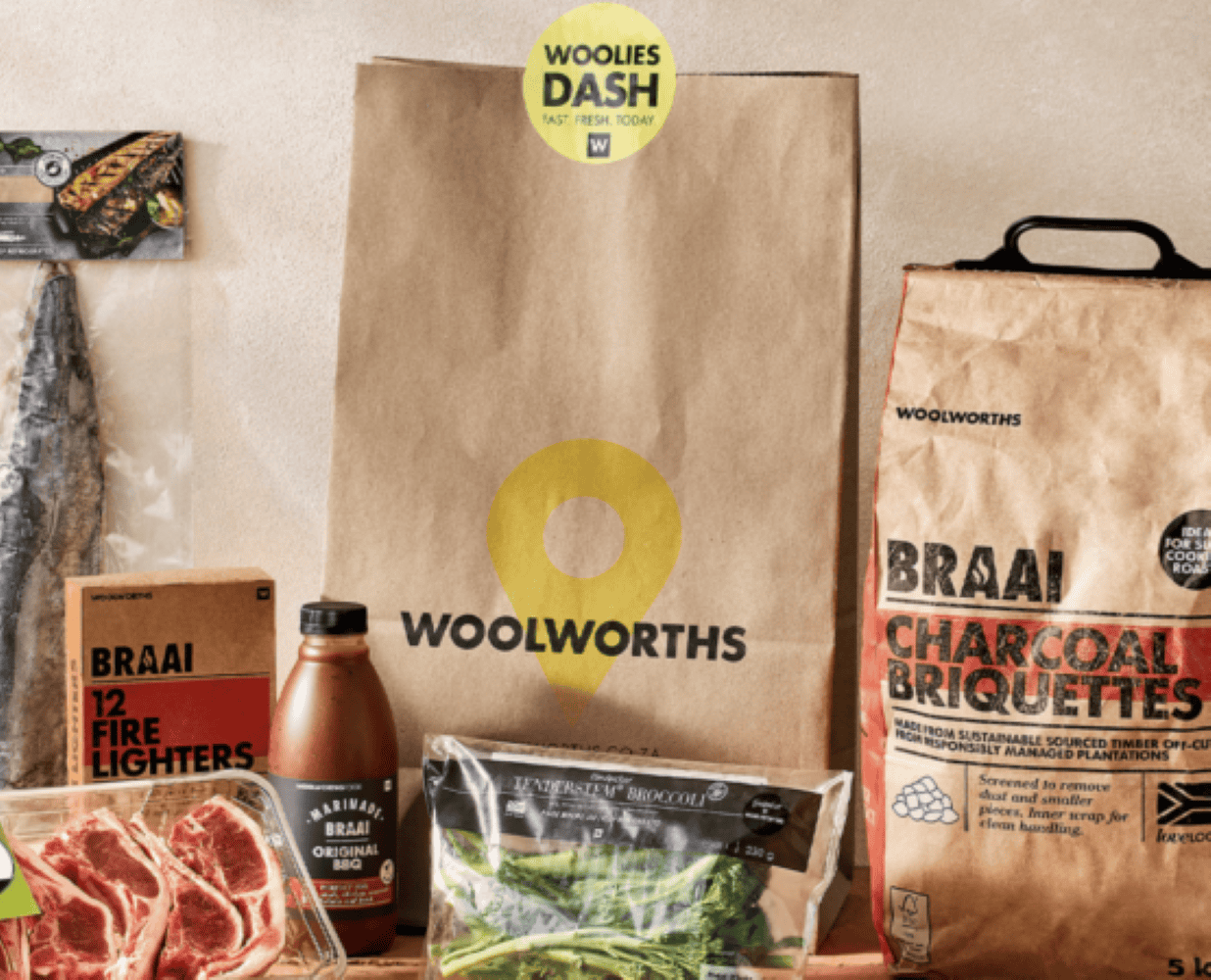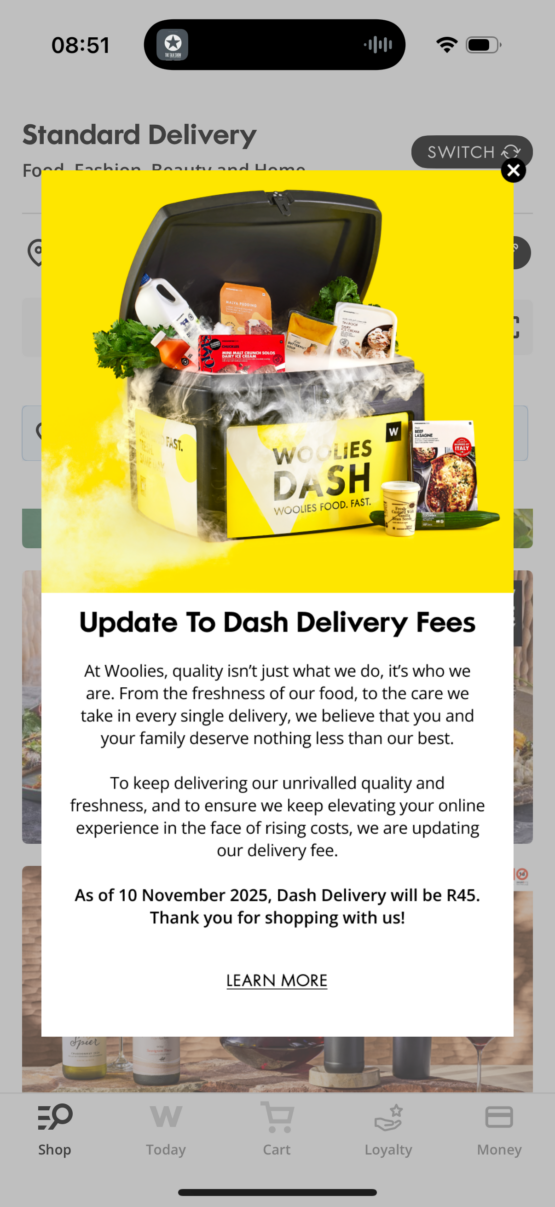Though technically Checkers blinked first in July by adding R1.

Woolworths has blinked and will hike the delivery fee for its Woolies Dash on-demand service to R45 from 10 November.
This is a 29% increase from the current R35 fee, which has been table-stakes since Checkers upended the market in November 2019 when it launched Sixty60. It set the delivery fee at R35 then, and rivals Pick n Pay (asap!), Woolies and Spar2U matched this when launching their own services.
Woolworths says “to keep delivering our unrivalled quality and freshness, and to ensure we keep elevating your online experience in the face of rising costs, we are updating our delivery fee”.

The ability of these retailers to have kept the fee flat has largely been driven by the rapid scaling of the various services. As the number of orders and deliveries increases, they are able to drive the unit cost of each delivery (including picking and packing) down through efficiencies.
In other words, 10% growth in orders doesn’t require 10% more staff.
However, as growth has begun moderating, underlying cost increases (salaries, petrol, rent) can’t as easily be absorbed by the topline growth.
Technically, Checkers actually blinked first when it rather quietly increased its fee by R1 to R36 from 1 July.
This was a very shrewd move as a typical shopper wouldn’t necessarily even notice the difference. Given the closeness of the two numbers, a shopper may just assume that the fee had always been R36.
ALSO READ: A tale of 2 grocery delivery apps – one lightning, one loooooong
Woolies Dash growth
Woolies Dash grew sales by 41.6% in the last year (to 29 June), versus 71.2% in the prior year. Interestingly, the group says 5% of Dash customers are new to the brand.
Collectively, its online platforms (online, click-and-collect, and Dash) contribute 6.6% of Food sales in South Africa, which equates to about R3.5 billion.
It says Dash has been the driver of this growth.
Not many people order groceries in the way that Woolworths (and Pick n Pay) originally launched with in this country, i.e. on a website with deliveries a day or two later.
Woolworths has previously said that Dash is profitable on a fully costed basis, in other words, after all related costs are allocated to the unit. Rivals Pick n Pay and Shoprite have also confirmed that their asap! and Sixty60 on-demand services are profitable on the same basis.
Pick n Pay said that its on-demand delivery services, across asap! and Mr D, saw growth in the first half (to end August) of 44% year-on-year. It has not disclosed its contribution to total sales from online.
ALSO READ: New way of shopping requires speedy deliveries – there is an app for that
Sixty60 leads
Sixty60 saw sales growth of 47.7% in the year to end June. In September, Shoprite disclosed that total sales from this platform were R18.9 billion in the year.
Sixty60 is by far the largest on-demand grocery delivery service in the country. Its market share is well, well, north of 60%, likely around 70%.
Some estimates put this at as high as 80%.
It added the general merchandise category from its Checkers Hyper footprint in October 2024 and this helped accelerate growth. This is the one service where it has charged a different delivery fee to the R35 (or R36). Deliveries for this category are charged at R50.
The group has also launched a subscription plan, called XtraSavings Plus, where customers get unlimited deliveries (for orders over R350) for R99 per month.
One way of thinking about the underlying costs of operating a service like this is to use the 100 million order figure shared by Shoprite.
At R35 per delivery (excluding the impact of the subscription offer), that’s R3.5 billion in delivery fees over the just more than five years Sixty60 has been in operation. It’s entirely likely that revenue from these fees and XtraSavings Plus subscriptions are at a R1 billion run rate.
This article was republished from Moneyweb. Read the original here.
Support Local Journalism
Add The Citizen as a Preferred Source on Google and follow us on Google News to see more of our trusted reporting in Google News and Top Stories.






